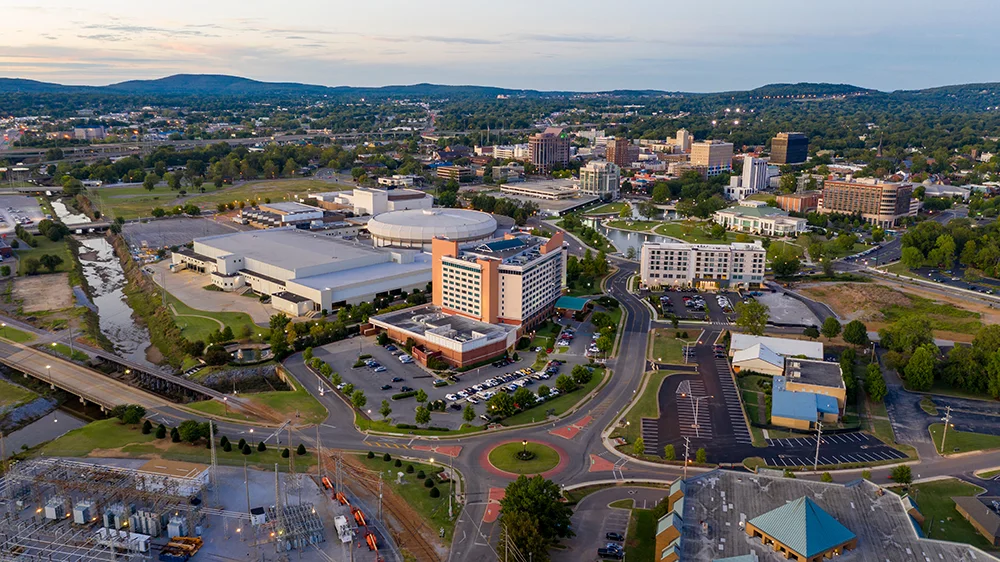The Different Types Of HOA Committees And Their Roles And Responsibilities

While every HOA has a board of directors in charge of maintaining the community, numerous HOA committees help them in community management. To get things done, the association can call on its homeowners to volunteer and serve on HOA committees.
Browse By Category
Sign up for Our Newsletter
While every HOA has a board of directors in charge of maintaining the community, numerous HOA committees help them in community management. To get things done, the association can call on its homeowners to volunteer and serve on HOA committees.
What Are HOA Committees?
An HOA committee is made up of homeowners who volunteer to assist the HOA board in managing different aspects of the community. These committees usually assign certain areas to focus on, such as finances, landscaping, social activities, or rule enforcement. Delegating these responsibilities helps the HOA ensure that the community runs smoothly.
Homeowners association committees run under the board’s authority. Nevertheless, these groups play important roles in managing and maintaining community operations.
Benefits of Having HOA Committees
What do HOA committees do? Committees are an essential part of HOA communities. Here are the benefits of having HOA committees.
1. HOA Committees Provide Valuable Assistance to the Board
 HOA board members are not community management professionals. They are homeowners who volunteer to serve their community, so they may not have the experience or expertise to manage the community. With work, family, and other personal obligations, HOA board members also don’t have enough time to take care of every aspect of the community.
HOA board members are not community management professionals. They are homeowners who volunteer to serve their community, so they may not have the experience or expertise to manage the community. With work, family, and other personal obligations, HOA board members also don’t have enough time to take care of every aspect of the community.
By establishing HOA committees, board members can delegate some of the tasks and responsibilities to volunteer homeowners. HOA committees can take care of the more basic tasks while board members can focus on bigger HOA duties—such as preparing financial reports, managing HOA funds, and planning capital improvement projects. With HOA boards and committees working together, the community can function properly and seamlessly.
2. HOA Committees Utilize the Skills and Talents of Homeowners
One of the benefits of HOA committees is the board’s ability to draw upon the skills and talents of homeowners. For instance, a person with landscaping expertise who is not seeking a contract for their company may be of tremendous help to the HOA landscape committee.
By seeking out homeowners with professional training or abilities, the HOA board can save money and time.
3. HOA Communities Help Foster Community Engagement
It’s important for residents to become involved in community matters. This enables residents to appreciate the importance of certain issues, such as maintaining property values and resident safety. Since committee membership can change over time, many residents can participate in HOA communities.
4. HOA Communities Provide Training for Future Board Members
Not all homeowners will willingly become board members. However, some members will not step forward to serve unless they are asked to do so, and some members also fear that they may not know how to serve effectively.
With HOA committees, you can identify which homeowners have the potential to become future board members. Their participation in HOA committees can serve as training for taking on HOA board responsibilities in the future.
What Are the Different Types of HOA Committees?
Committees can be categorized into three general types:
- Executive. Executive committees are committees that are exclusively made up of HOA board members.
- Standing. Standing committees are committees that have constant tasks to fulfill. As the name suggests, these committees exist for an indefinite period of time.
- Ad Hoc. Also known as special committees, ad hoc committees are assembled for a specific purpose and disband after that purpose is achieved.
There are many different types of HOA committees. However, a community doesn’t need to have all of them. It will depend on your community’s needs. Here is a list of HOA committees and what they offer the community.
HOA Finance Committee
The HOA Finance Committee supports the board of directors by helping manage the association’s financial health. Some of this committee’s regular responsibilities can include the following:
- Helps the board prepare the HOA’s annual budget.
- Assists in monitoring the community’s monthly, quarterly, and yearly expenses.
- Oversees the association’s reserve funds.
- Helps in creating regular audits, financial reviews, and reserve studies.
In addition to these, the Finance Committee may also help the HOA board develop investment strategies to maximize returns. They should also help ensure that all budget and financial practices align with community goals and maintain legal compliance and transparency.
HOA Social Committee/Events Committee
 The HOA social committee, also sometimes called the events committee, is in charge of planning community events and making sure that homeowners have the opportunity to meet their neighbors.
The HOA social committee, also sometimes called the events committee, is in charge of planning community events and making sure that homeowners have the opportunity to meet their neighbors.
Some common activities such committees organize include:
- Welcome parties to introduce new homeowners to the community
- Fixed annual events such as holiday parties and summer festivals.
- Smaller gatherings such as movie nights, potlucks, book clubs, and senior social events, among others.
Organizing these events is no small feat. This committee handles the nitty-gritty of these gatherings, including managing the budget, planning, logistics, and promotions. They will also need to secure vendors and venues for these events.
HOA Communications Committee
The HOA Communications Committee is responsible for keeping residents informed about community news, updates, and events. As the neighborhood’s primary information channel, the committee must ensure transparency and consistency in relaying communications between the board and homeowners.
Some of the main responsibilities of the communications committee include:
- Newsletters: The Communications committee creates and sends out regular updates through newsletters. These may contain details on HOA decisions, upcoming events, and relevant community news.
- Announcements: This committee also manages the timely publication of announcements and reminders. They may send physical copies or electronically via email or SMS.
- HOA Website Content: Working with the Technology Committee, the Communications Committee should ensure that the HOA website is updated with critical information and news updates.
- Maintaining social media accounts: This committee also handles posting updates, promoting events, and communicating with homeowners on different social media platforms where the HOA has a presence.
Because this committee can have a long list of responsibilities, it may form subcommittees to handle some of the duties such as separate Newsletter or Social Media Committees.
HOA Architectural Control Committee
The HOA Architectural Control Committee helps preserve the beauty, appeal, and property values within the community. This group is responsible for reviewing design and modification applications sent in by residents, ensuring that they comply with the HOA’s architectural standards outlined in the governing documents.
Apart from application reviews, they also help prevent design alterations or installations that could negatively impact property values or disrupt the community’s overall. This committee enforces guidelines related to all exterior modifications, such as paint colours, landscaping, or structural additions.
HOA Landscape Committee
The HOA Landscape Committee helps oversee the upkeep and appearance of both private and common outdoor areas in the community. Their responsibilities may include monitoring a resident’s property to ensure its outdoor spaces (lawns, gardens, etc.) are well kept and follow community rules about landscaping.
Besides monitoring homeowner compliance, the committee also handles the following tasks:
- Overseeing bids from professional landscape vendors
- Choosing the right landscaping contractors,
- Coordinating landscaping works for common areas such as parks, greenways, or entrances.
HOA Maintenance Committee
This committee is responsible for maintaining the upkeep of both shared community areas and private properties to maintain the neighborhood’s cohesive appearance and functionality. Some of its duties include monitoring the condition of common areas and identifying whether repairs are needed.
In addition, the Maintenance Committee can help homeowners who need guidance on maintaining their properties in accordance with community standards. This responsibility may involve providing recommendations for trusted contractors and vendors who provide roofing, landscaping, or general home repairs.
HOA Covenants Committee
The HOA covenants committee, also known as an HOA compliance committee, assists the board in rule compliance and violation enforcement. The committee monitors the community and enforces violations for homeowners not complying with the HOA’s rules and regulations.
HOA Safety Committee
The HOA safety committee helps improve the security of the community. Committee members can patrol the neighborhood to ensure that safety and security standards are being met. The safety committee may also have a neighborhood watch program to prevent crime and illegal activity in the community and keep residents safe.
HOA Welcome Committee
The Welcome Committee can help with the transition to build a sense of community, especially with new homeowners. Members may drop by and help out the new residents, answering questions to familiarize them with the community’s rules and policies.
Additionally, this committee may also collaborate with the social committee to organize an event that helps introduce the new residents to the rest of the community.
HOA Technology Committee
The advancement of technology continues, and more HOAs have adopted it to manage the community. However, not everyone in the HOA is tech-savvy, and many may need help navigating new tools, such as community applications and data services.
This is where the HOA Tech Committee enters. It helps the board with tech issues. The committee may be responsible for creating and maintaining the HOA website or mobile apps that make different HOA matters more convenient.
HOA Special Committees
HOA special committees are formed to address short-term or specific issues. They are temporary and exist to serve the HOA board with a certain community matter. For example, the HOA may set up a special committee to oversee the new playground project. The committee will then disband following the completion of the project.
How to Set Up HOA Committees
HOA committees contribute significantly to the community’s welfare. To establish effective committees, consider the following steps.
1. Check HOA’s Governing Documents
 Review your governing documents to find existing rules on committee size, member qualifications, and procedures for removal. Make sure your committees comply with these rules.
Review your governing documents to find existing rules on committee size, member qualifications, and procedures for removal. Make sure your committees comply with these rules.
2. Create HOA Committee Charters
If no guidelines exist, create HOA committee charters, outlining each committee’s purpose, budget, responsibilities, decision-making authority, and timeframe.
3. Define Organizational Structures for Each HOA Committee
When creating a committee, assign roles with defined responsibilities, such as a chairperson to lead meetings and a secretary to record minutes.
But can an HOA board member serve on a committee? If your governing documents allow it, HOA board members on committees are possible.
4. Create Clear Descriptions for HOA Committee Positions
The HOA should provide clear committee job descriptions to prevent conflicts and ensure members understand their duties. It must state HOA committee roles and responsibilities in a manner that prevents misunderstandings and conflicts. For example, HOA landscape committee members should be clear on HOA landscape committee guidelines to do their job properly.
5. Recruit Committee Members
Encouraging homeowners with the right skills and character to join HOA committees is a great way to get them involved in community matters and gives the board a fresher perspective on things.
6. Decide Whether to Hold Open or Closed Meetings
This will depend on the committee involved. Usually, open meetings are recommended to maintain transparency and build trust. However, committees handling more sensitive and confidential matters, closed meetings are the way to go.
HOA Committees and Your Community’s Success
 Members of HOA committees should know the guidelines and the scope of their authority. As long as you follow these HOA committee guidelines, though, you’ll be able to set up your community for success.
Members of HOA committees should know the guidelines and the scope of their authority. As long as you follow these HOA committee guidelines, though, you’ll be able to set up your community for success.
If committees are not right for you, consider turning to an HOA management company for help. Such a company can take on all the tasks of HOA committees. Use our online directory today to look for the best HOA management company near you.
RELATED ARTICLES:
- What Are HOA Covenants Anyway? Why Is It Important?
- HOA Social Committee Ideas For Your Community
- Will An HOA Neighborhood Watch Benefit Your Community?
Trending Now
Related Article
Sign up for Our Monthly Newsletter
Sign up below for monthly updates on all HOA Resource
















